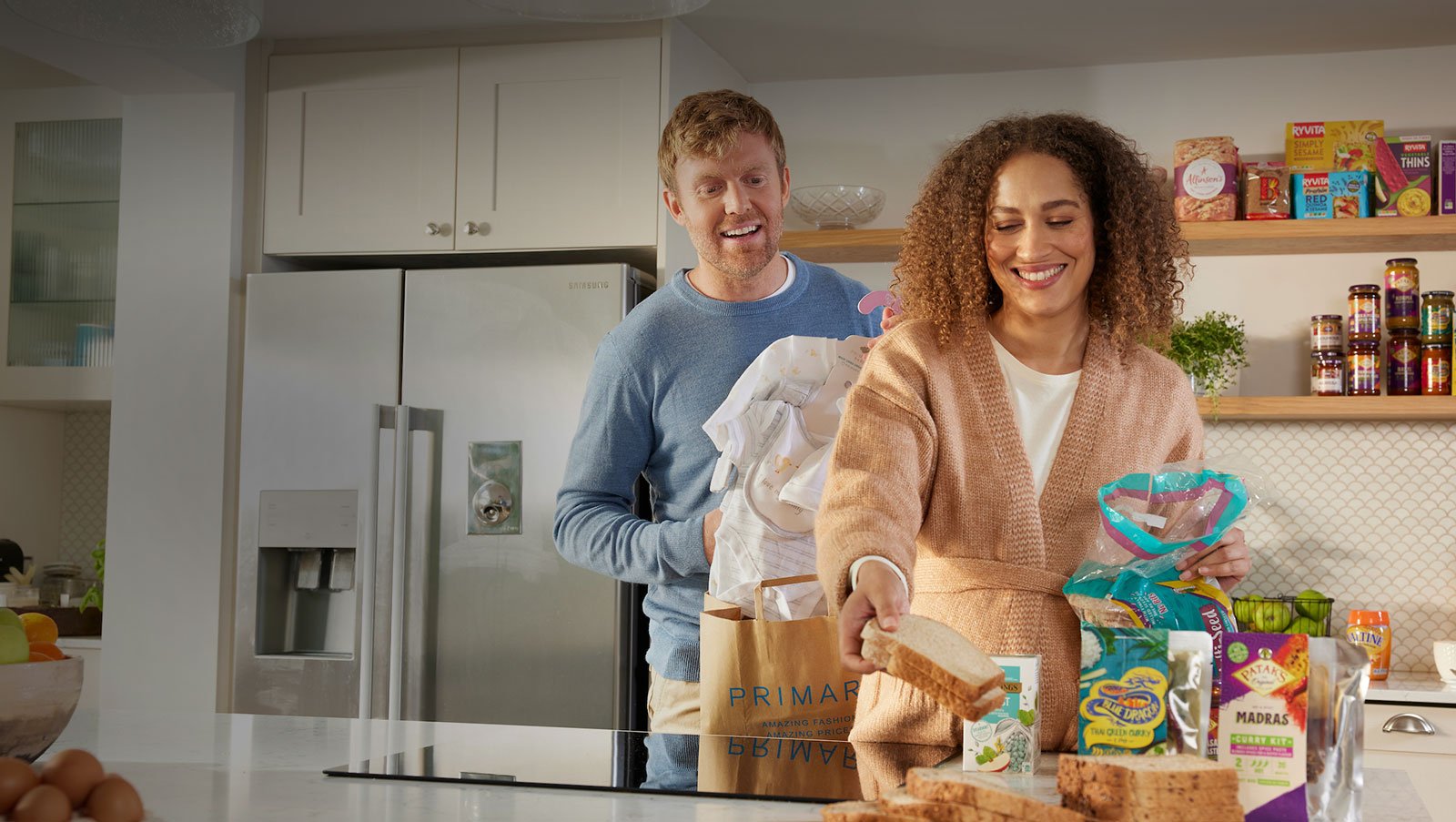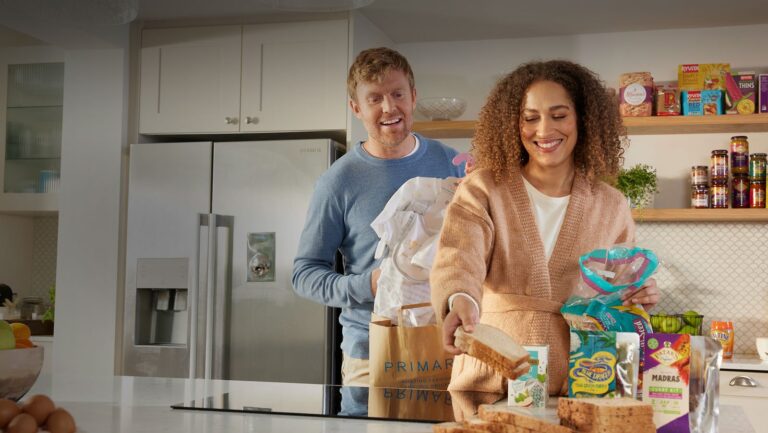Associated British Foods plc (LON:ABF) has announced its results for the 52 weeks ended 13 September 2025
Financial headlines
| 2025 | 2024 | Actualcurrency | Constant currency | |
| Group revenue | £19,459m | £20,073m | (3)% | (1)% |
| Adjusted operating profit | £1,734m | £1,998m | (13)% | (12)% |
| Adjusted profit before tax | £1,696m | £1,957m | (13)% | |
| Adjusted earnings per share | 174.9p | 196.9p | (11)% | |
| Operating profit | £1,483m | £1,932m | (23)% | |
| Profit before tax | £1,413m | £1,917m | (26)% | |
| Basic earnings per share | 141.6p | 193.7p | (27)% | |
| Gross investment | £1,244m | £1,281m | (3)% | |
| Free cash flow | £648m | £1,355m | ||
| Net cash before lease liabilities | £390m | £1,044m | ||
| Total net debt | £(2,629)m | £(2,021)m | ||
| Return on Average Capital Employed (‘ROACE’) | 15.5% | 18.1% | ||
| Total dividends per share | 63.0p | 90.0p |
Operating profit is stated after exceptional charges and other items as shown on the face of the consolidated income statement. In 2025, total exceptional items were £188m, which primarily related to non-cash impairment charges of £154m and £34m related to restructuring activity that has or will result in cash costs (2024: £35m related to non-cash impairment charges). The Group has defined and outlined the purpose of its Alternative performance measures (‘APMs’) in note 14. These measures are used within the Financial headlines and in this Annual Results Announcement.
References to changes in revenue and adjusted operating profit in the following commentary are based on constant currency unless stated otherwise.
Group performance
| • | Revenue decreased 1%, with growth in Retail offset by a decline in Sugar |
| • | Adjusted operating profit declined 12% due to the reduction in operating profit in Sugar |
| • | Adjusted EPS decreased 11% to 174.9p, benefitting from the accretive impact of share buybacks |
| • | Continued investment of £1.2bn in capacity, capabilities and new technology to support growth |
| • | Good progress delivering our focused sustainability priorities, particularly decarbonisation |
| • | Free cash flow of £648m reflects lower operating profit and higher working capital following a non-recurring benefit in 2024 |
| • | Group return on average capital employed was 15.5% |
Segmental performance
| • | Retail: | |
| • | Sales grew 1% to £9.5bn | |
| • | Good execution of store rollouts in Europe and the US contributed 4% to sales growth | |
| • | UK like-for-like sales improved in the second half as we renewed our focus on Primark’s value proposition and product offer | |
| • | In Europe, a strong first half was followed by weaker trading in the second half | |
| • | Adjusted operating profit increased 2% to £1.1bn and adjusted operating profit margin was 11.9% | |
| • | Significant step up in investment in digital, brand and product initiatives to drive long-term growth | |
| • | In Grocery, international brands delivered good sales growth, offset by US oils and Allied Bakeries, as expected | |
| • | Ingredients delivered strong growth in adjusted operating profit | |
| • | Sugar adjusted operating profit was breakeven excluding Vivergo, as expected | |
| • | Agriculture adjusted operating profit declined due to one-off costs and a lower profit contribution from its joint venture | |
Shareholder returns
| • | Strong balance sheet with a leverage ratio of 1.0x at 13 September 2025 |
| • | Total dividend of 63.0p per share, in line with 2024, comprising interim dividend of 20.7p per share and proposed final dividend of 42.3p per share |
| • | Completed £594m of share buybacks in 2025 |
| • | Announcing further share buyback programme of £250m, expected to be completed before the end of financial year 2026 |
| • | Board review of Group structure announced, which may lead to a separation of the Primark and Food businesses |
Outlook
In 2026, we expect the Group to deliver growth in adjusted operating profit and adjusted EPS, and we are confident in the Group’s medium and long-term growth prospects.
In Primark, we continue to expect the consumer environment to remain subdued. We are focused on strengthening our customer value proposition through our product offer, price and price perception, and digital customer engagement with a view to driving like-for-like sales. We have made good progress in the UK and Ireland, and we have plans to roll out similar initiatives in all of our other markets. Our store rollout programme continues in Europe, the US and through our franchise model and is expected to contribute around 4% to sales growth in 2026. We continue to target white space growth to contribute around 4% to 5% per annum to our growth in total sales for the foreseeable future. Adjusted operating profit margin is expected to be slightly below last year’s underlying adjusted operating profit margin as we focus on investing in growth. It should be noted that in 2025 we had a non-recurring benefit of around £20m.
In Grocery, we expect our international brands to deliver good growth in sales and profit, underpinned by investment in marketing and product innovation, albeit offset by lower volumes and profit in our US oils business. As such, we expect profit to be around the same level as 2025. In Ingredients, we expect to deliver sales growth in our yeast and bakery ingredients business and in our specialty ingredients portfolio. As a result of increased investment, we expect to hold adjusted operating profit in Ingredients at broadly this year’s level. In Agriculture, we expect adjusted operating profit to remain in line with 2025.
We still expect to improve profitability in Sugar and to deliver a small adjusted operating profit in 2026. Our cost base will benefit from both the lower beet price that we negotiated in the UK and the restructuring actions that we have taken to date in Spain to reduce our beet manufacturing footprint. We continue to expect our average selling price in 2026 to be below 2025’s as European sugar prices remain low. We anticipate good progress in Africa in 2026, in particular with the commissioning of our new sugar mill in Tanzania.
Review of the Group Structure
The Board of Associated British Foods has been conducting a review of the Group structure with a view to maximising long-term value. Although no decision has been taken, the outcome of this review may lead to the Board deciding to undertake a separation of the Primark and Food businesses. This review is being conducted in consultation with ABF’s largest shareholder, Wittington Investments, which remains committed to maintaining majority ownership of both businesses. Rothschild & Co has been assisting the Board with the review.
The Board will provide an update on the review as soon as practicable.
George Weston, Chief Executive of Associated British Foods, said:
“This was a year of intense strategic and operational activity within ABF. Most of our businesses delivered robust financial results, while navigating a challenging external backdrop.
Primark’s improved UK trading in the second half was encouraging and reflects renewed focus on our value proposition, a stronger product offer and enhanced digital capabilities. We have more to do in some of Primark’s European markets and there are plans in place. Significant white space remains as Primark continues its store expansion in existing and new markets and through franchise opportunities. Overall trading in our Grocery and Ingredients businesses was as expected. In a difficult year for Sugar, the actions taken to close our Vivergo bioethanol plant and restructure our Spanish business will support improved profitability.
Looking ahead, we are confident in the Group outlook for 2026 although much depends on the consumer environment, which is particularly unpredictable at the moment. Our strong balance sheet underpins disciplined investment as we continue building brands and businesses that will deliver growth over the long term.
I fully support the Board’s review of the Group structure and will be closely involved in the process and any outcome. Within ABF we have two great businesses but one strong culture of long-term value creation driven by the dedication and excellence of our people. Our unique and exceptional Food business has historically been less well understood by the financial markets than Primark, yet it has a highly attractive portfolio, deep global expertise and much potential. Primark has an incredibly strong international brand, a powerful customer proposition, and substantial growth opportunities.
I am very excited by what we can deliver in the future for both Food and Primark.”
Michael McLintock, Chairman of Associated British Foods, said:
“As a Board, we have regularly looked at the structure of the Group to assess how best to develop our strong Food and Primark businesses. ABF has delivered good long-term returns for shareholders in its current structure and been a supportive home for both Primark and our Food businesses. Given the scale that Primark has now attained and the need for better understanding of our Food businesses, the Board has been undertaking an in-depth review of the future shape of ABF to assess whether a separation of the Primark and Food businesses would be a better structure in the years ahead. This review is in consultation with Wittington as ABF’s largest shareholder, and we look forward to discussing the review with all of our stakeholders. I am leading the review and will update the market further when we are able to provide more detail.”









































